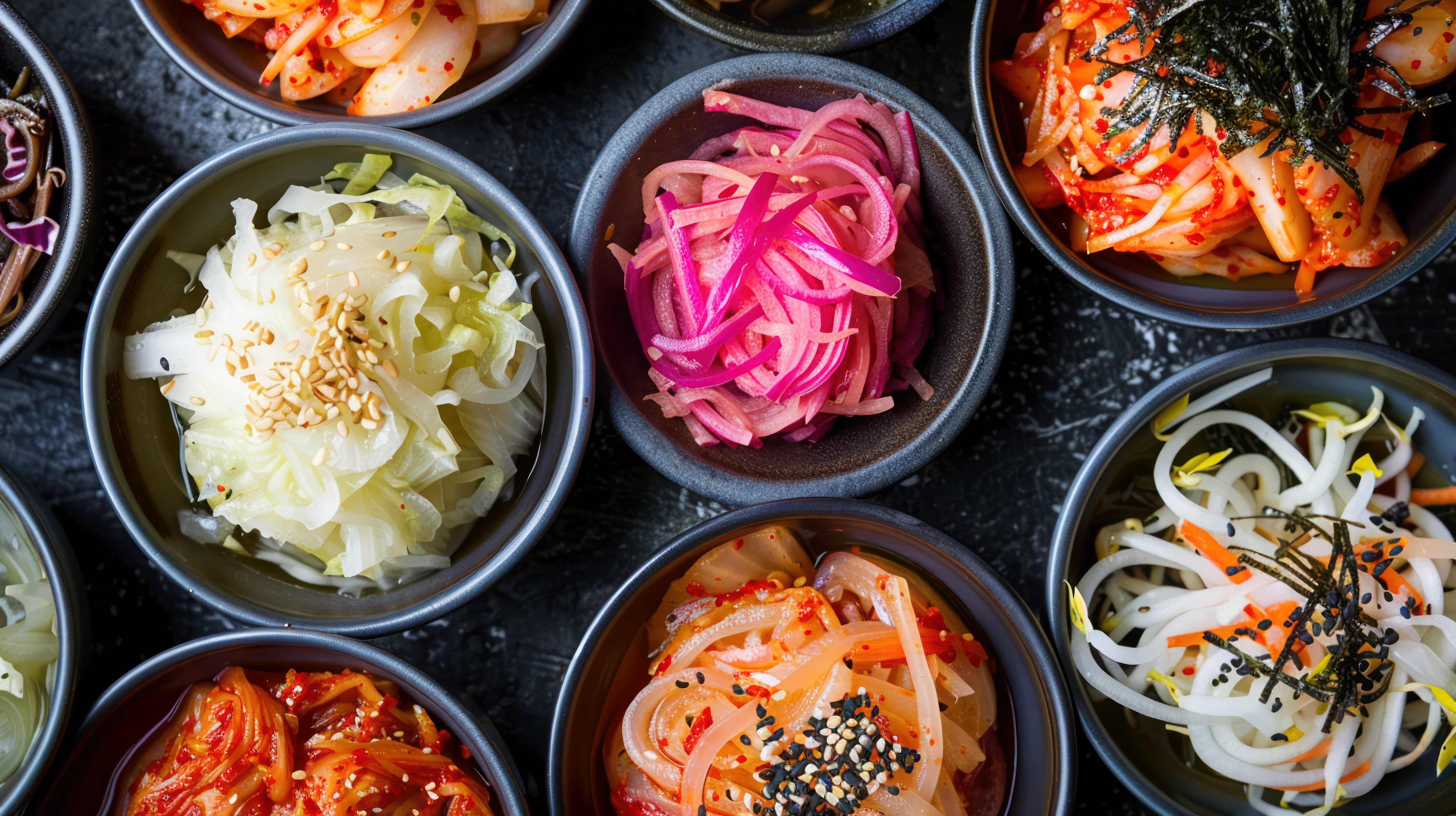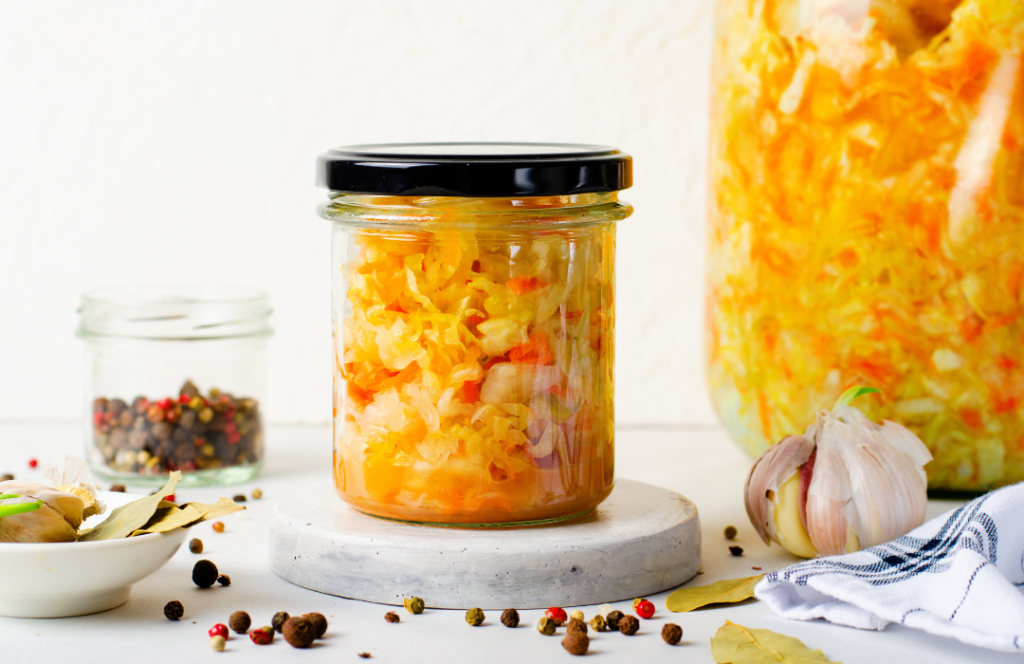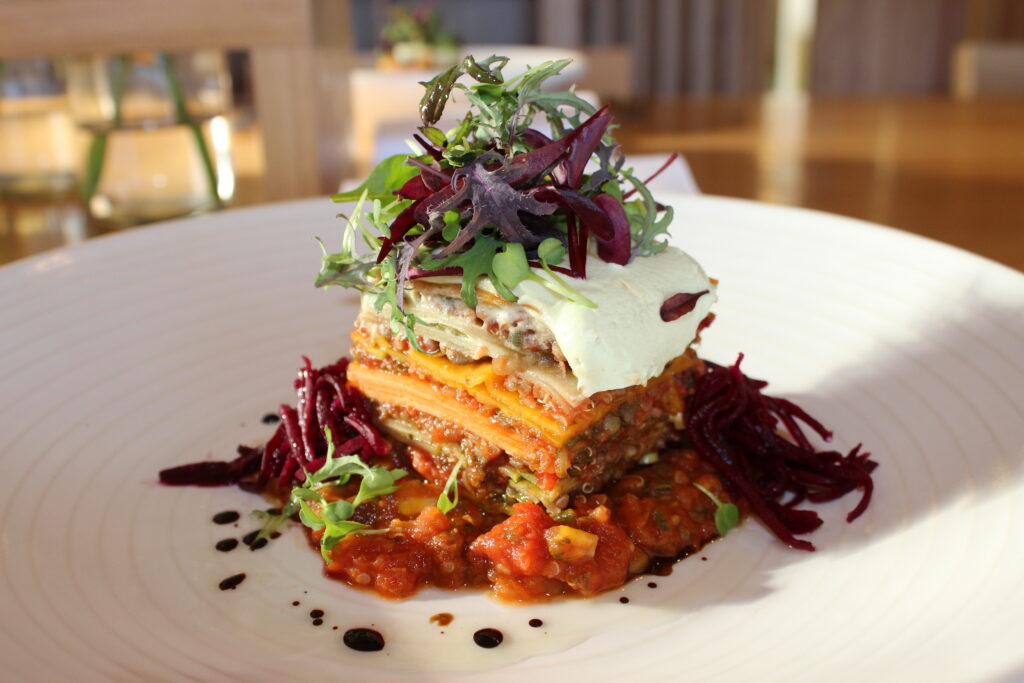In the ever-evolving world of nutrition, fermented foods have taken centre stage—not just for their tangy flavours but for their profound impact on our gut and brain health.
Nutritional medicine practitioner, Michele Chevalley Hedge, delves into the latest research highlighting these benefits and explores recommended supplements to keep your brain in top-notch condition. And hey, if you can improve your gut while enjoying some tasty foods, then we have a double bonus… and we are all about that!
Fermented Foods: A Feast for Your Gut
Fermented foods like kimchi, sauerkraut, and kefir are more than culinary delights; they’re teeming with live microorganisms that bolster our gut microbiota.
A study from Stanford University revealed that incorporating fermented foods into one’s diet can enhance microbiome diversity and reduce inflammation[1]. This is significant because a diverse microbiome is linked to better cognitive function, moods, digestion, immunity, and overall health. In other words, your gut bugs are throwing a party, and fermented foods are the VIP guests. Fermented foods are included the list of most desirable foods to eat for gut-mind health, and they include the following:
Probiotics are live bacteria that provide health benefits when consumed, while prebiotics are types of dietary fibre that feed the beneficial bacteria in your gut. Some excellent probiotic foods include:
- Yogurt (plain Greek or coconut) & Kefir
- Sauerkraut & Kimchi
- Miso
- Tempeh
- Kombucha
- Pickles (fermented in brine)
Prebiotic foods, on the other hand, help nourish your gut microbiome and include:
- Garlic, Onions, Leeks
- Asparagus Jerusalem Artichoke
- Bananas, Apples
- Oats
- Flaxseeds
- Chicory root (also labelled as inulin) is a natural sweetener that doesn’t significantly affect your blood sugar and has a smooth, mild flavour. It’s often found in combination with other sweeteners like stevia)
The Gut-Brain Connection: More Than a Feeling
Ever had a “gut-wrenching” experience? Turns out, it’s not just a saying. The gut and brain communicate through the gut-brain axis, a two-way superhighway, a complex network that influences our mood and cognitive functions. Recent research published in 3 Biotech highlights how the gut-brain axis plays a role in neuroinflammation and cognitive decline [2]. Maintaining a healthy gut through fermented foods and a whole foods diet supports better brain health and potentially staves off neurodegenerative diseases—because no one wants brain fog.
BDNF: Your Brain’s Personal Trainer
Brain-Derived Neurotrophic Factor (BDNF) is like the personal trainer of your brain cells, helping neurons grow, survive, and stay in shape. Low BDNF levels have been linked to mental decline, depression/the “flatsies,” and a lack of motivation. The good news? Fermented foods, prebiotic-rich foods, and certain supplements, such as omega-3s and probiotics, can help boost BDNF levels, keeping your brain feeling sharp and focused.
Neuroinflammation: The Brain’s Fire Alarm
Chronic neuroinflammation is like a fire alarm that won’t stop blaring—it contributes to cognitive decline, mental fog, and even conditions like Alzheimer’s. The gut plays a significant role in controlling inflammation, and recent research suggests that probiotics found in fermented foods can help lower inflammatory markers in the brain[3]. So, in short, eat your yoghurt, and your brain might just thank you later.
Supplements for Brain Health: Feeding Your Mind
While a balanced diet is paramount, certain supplements can offer additional support for brain health:
- Omega-3 Fatty Acids: Found in fish oil, these fats are essential for brain function and have anti-inflammatory properties. They’ve been linked to improved cognitive performance and a lower risk of Alzheimer’s disease. (Fish for thought, anyone?)
- Probiotics: Dubbed “psychobiotics” when they benefit mental health, specific strains like Lactobacillus and Bifidobacterium can positively influence mood and cognitive function by modulating the gut-brain axis.
- Prebiotics: Supplementing with prebiotics can support gut bacteria and promote better mental well-being.
- Lion’s Mane Mushroom: Lion’s Mane will be the Taylor Swift of supplements in 2025. Everyone will want more of it. This medicinal mushroom has gained attention for its potential to enhance cognitive function and mood. It will trend significantly in 2025 due to its emerging health benefits.
Incorporating Fermented and Prebiotic Foods into Your Routine
To harness the benefits:
- Diversify Your Diet: Incorporate various probiotic and prebiotic foods like yogurt, kimchi, kefir, pickles, and bananas to support a robust gut microbiome.
- Please consult a Professional: Before starting any new supplement, it’s wise to consult with an accredited nutritional medicine provider to ensure it’s appropriate for your individual health needs and check contraindications with existing medications.
- Stay Informed: As research evolves, staying updated with evidence-based health practitioners, specialty retreats, books, and articles will help you make informed decisions about your health.
In conclusion, embracing fermented and prebiotic foods and considering targeted supplements can be a delicious and effective strategy to support both gut and brain health. After all, a happy gut often leads to a happy mind—and who wouldn’t want that?

Learn more about the retreat HERE and Aro Ha HERE.
References
- Stanford Medicine. “Fermented food diet increases microbiome diversity, lowers inflammation.” Link
- Springer. “Gut-brain axis and neuroinflammation.” Link
- Springer. “Probiotics and brain health.” Link
Read more health & wellness stories HERE






